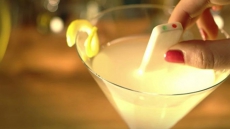An international team of scientists on Monday said they have discovered a trio of Earth-like planets that are the best bet so far for finding life outside our solar system.
The three orbit an ultracool dwarf star a mere 40 light-years away, and are likely comparable in size and temperature to Earth and Venus, they reported in a study, published in Nature.
“This is the first opportunity to find chemical traces of life outside our solar system,” said lead author Michael Gillon, an astrophysicist at the University of Liege in Belgium.
All three planets had the “winning combination” of being similar in size to Earth, “potentially habitable” and close enough so their atmospheres can be analysed with current technology, he told.
The find opens up a whole new “hunting ground” for habitable planets, he added.
Gillon and colleagues calibrated a 60-centimetre telescope in Chile, known as TRAPPIST, to track several dozen dwarf stars neither big nor hot enough to be visible with optical telescopes.
They zeroed in on a particularly promising one – now known as TRAPPIST-1 – about one eighth the size of the Sun, and significantly cooler.
Observing it for months, the astronomers noticed that its infrared signal faded slightly at regular intervals, evidence of objects in orbit.

Further analysis confirmed they were exoplanets – planets revolving around stars outside our solar system.
The innermost two circle their dwarf star every 1.5 and 2.4 days, though they are hit with only four and two times the amount of heat-generating radiation that Earth receives from the Sun.
The more distant orbit of the third planet takes between four and 73 days, according to the study.
“So far, the existence of such ‘red worlds’ orbiting ultra-cool dwarf stars was purely theoretical, but now we have not just one lonely planet but three,” said co-author Emmanuel Jehin, also from the University of Liege.
He called the discovery a “paradigm shift” in the search for life elsewhere in the universe.
Given their size and proximity to their low-intensity star, all three planets may have regions at temperatures within a range suitable for sustaining liquid water and life, the study concluded.
Their proximity to Earth means scientists will be able to find out a lot more.
“These planets are so close, and their star so small, we can study their atmosphere and composition,” said co-author Julien de Wit, a postdoc at the Massachusetts Institute of Technology (MIT.)
“This is a jackpot for the field,” he said in a statement, adding that it should be possible to determine if they harbour life “within our generation.”





